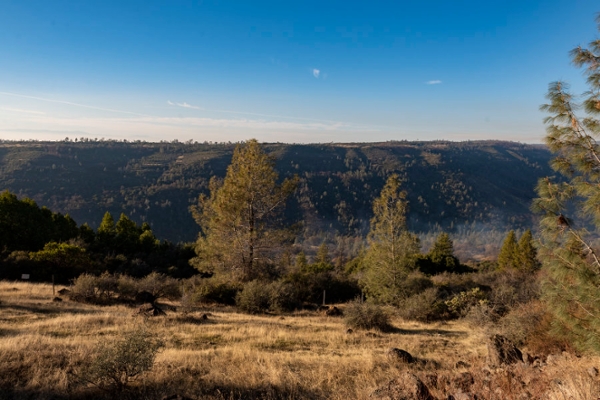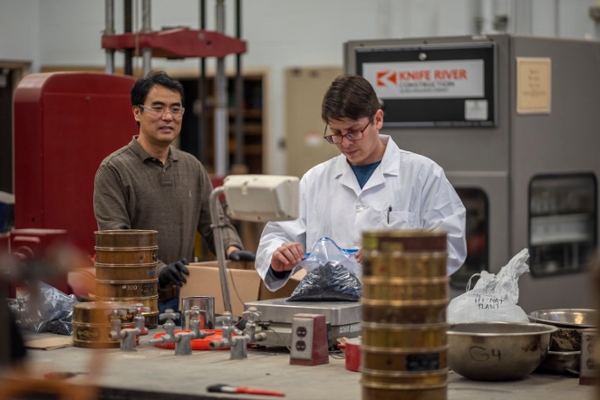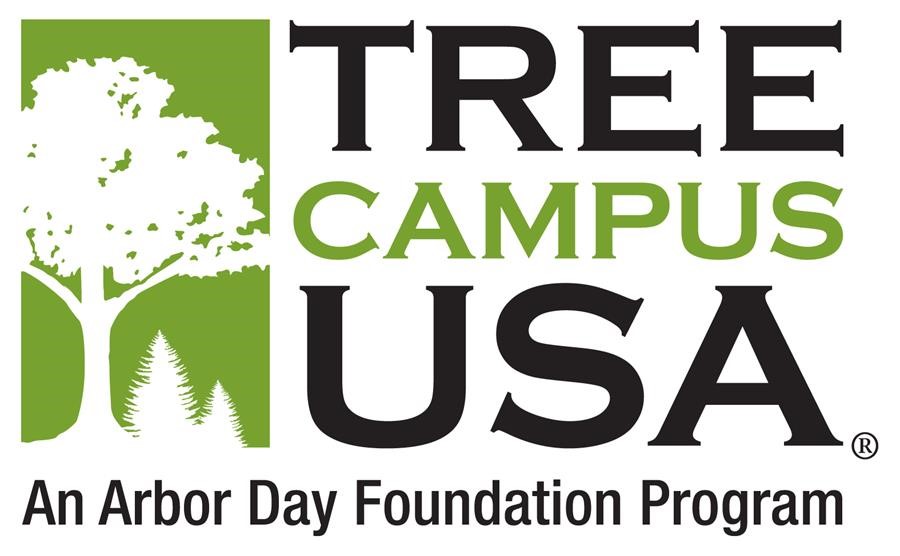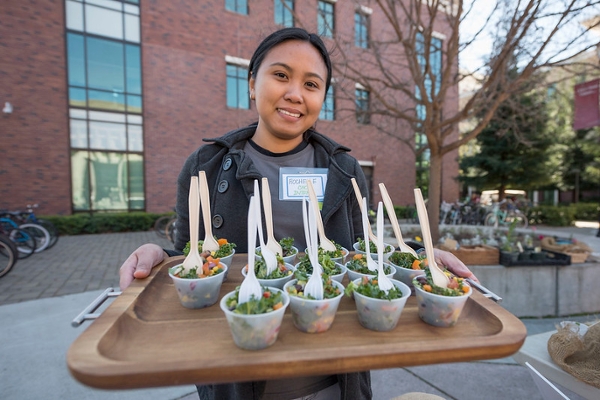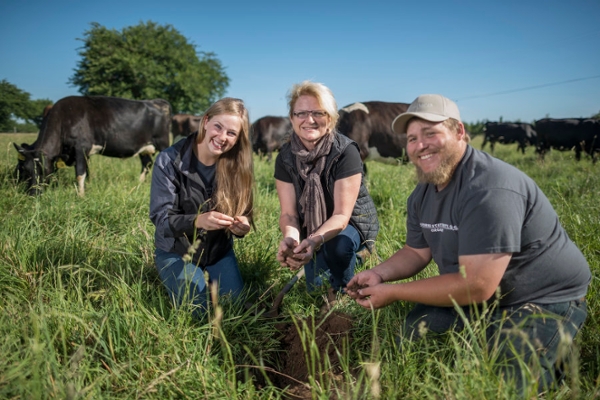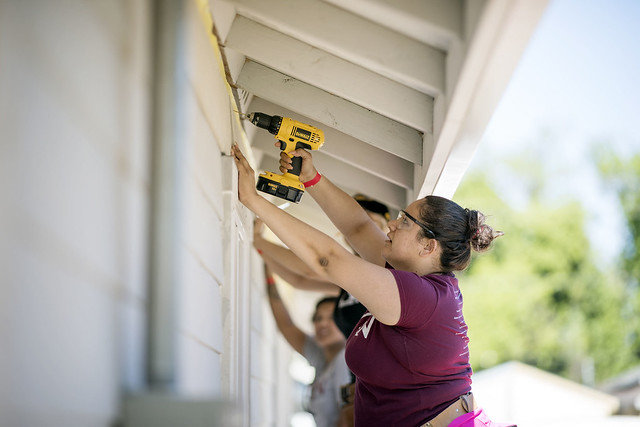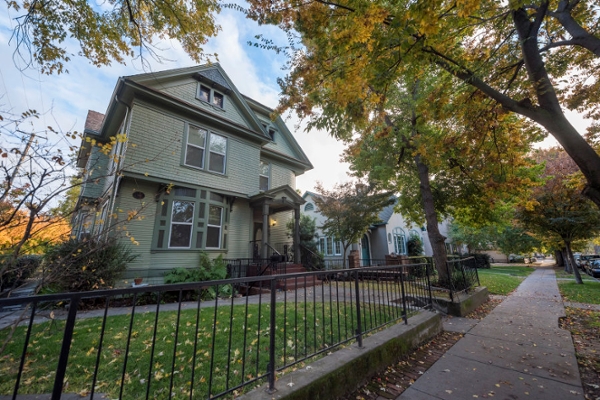At Chico State, our academic programs offer students exposure to a multitude of concepts and learning experiences that contribute to their understanding of sustainable development. Sustainable development is infused throughout our curriculum and represented in many centers and programs on our campus.
Sustainability in Academics and Research
 "Sustainability" means developing an awareness of planetary constraints, behaving as a caretaker for the earth, and planning for future generations dependent on the wellbeing of the planet. The General Education Sustainability Pathway(opens in new window) introduces the multiple dimensions surrounding environmental issues and needed skills to enter both the workforce and public life as a socially-responsible and environmentally-minded citizen. The Sustainability Pathway course of study intentionally links the perspectives of multiple academic disciplines around the concept of sustainability, emphasizing systems thinking to address global issues, examining barriers and potential solutions to climate change, natural resource management, and ecosystem restoration.
"Sustainability" means developing an awareness of planetary constraints, behaving as a caretaker for the earth, and planning for future generations dependent on the wellbeing of the planet. The General Education Sustainability Pathway(opens in new window) introduces the multiple dimensions surrounding environmental issues and needed skills to enter both the workforce and public life as a socially-responsible and environmentally-minded citizen. The Sustainability Pathway course of study intentionally links the perspectives of multiple academic disciplines around the concept of sustainability, emphasizing systems thinking to address global issues, examining barriers and potential solutions to climate change, natural resource management, and ecosystem restoration. 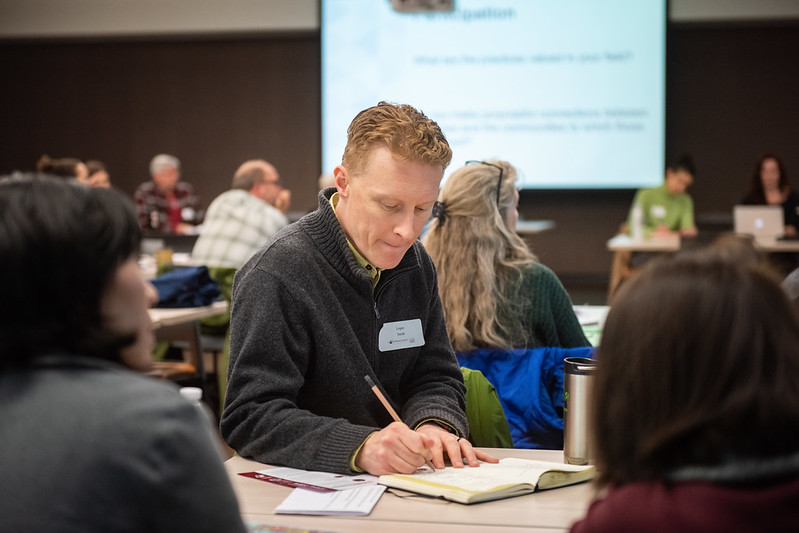 The Office of Faculty Development (FDEV) and the Campus Sustainability Curriculum Subcommittee hosted a Teaching Climate Change and Resilience Series(opens in new window), consisting of workshops designed to advance teaching practices. This series is in response to the President’s strategic priority for Resilient and Sustainable Systems. The workshops highlighted courses that address climate change and resilience and intended to inspire the development of new course content. The series was the first step in the larger goal of creating a faculty learning community (FLC) around climate change and resilience beginning in Spring 2022.
The Office of Faculty Development (FDEV) and the Campus Sustainability Curriculum Subcommittee hosted a Teaching Climate Change and Resilience Series(opens in new window), consisting of workshops designed to advance teaching practices. This series is in response to the President’s strategic priority for Resilient and Sustainable Systems. The workshops highlighted courses that address climate change and resilience and intended to inspire the development of new course content. The series was the first step in the larger goal of creating a faculty learning community (FLC) around climate change and resilience beginning in Spring 2022.
A curated list of e-books are available on the Teaching Climate Change and Resilience website(opens in new window) for all Chico State faculty to access as they being or continue down the path of integrated climate change and resilience into their curriculum. Keep an eye out for more info on the FLC coming soon.
conducted a campus survey in Nov-Dec 2020 to generate a snapshot of sustainability
research efforts on campus and gather information for the 2021 STARS report. In total 147 staff, lecturers, faculty, Department Chairs, College Deans, and Center directors participated in the survey. Of those respondents, 56% involved in research (69 of 123) were engaged in research, scholarship, and creative activities focused on sustainability. View the full Sustainability Research at Chico State report (PDF) for more information.
College Highlights in Sustainable Development and Courses Relevant to Sustainable Development
The current criteria are: Green courses must focus on environmental issues, management of scarce resources, and/or sustainable development. Green courses encourage students to be wise stewards of scarce resources and to understand that individual and collective actions have economic, social, and environmental consequences. Green Courses are identified in the course catalog with the green leaf.
The College of Agriculture
The College of Agriculture(opens in new window) offers programs of integrated agricultural and environmental systems that contribute to education for sustainable development: agriscience and education, animal science, and plant science.
The College of Behavioral and Social Sciences
The College of Behavioral and Social Sciences(opens in new window) has several disciplines key to education for sustainable development:
- Department of Anthropology(opens in new window)
- Department of Economics(opens in new window)
- Department of Geography and Planning(opens in new window)
The College of Business
The College of Business(opens in new window) offers a GE Pathway Minor in Sustainable Studies(opens in new window). The Sustainable Pathway introduces the multiple dimensions surrounding environmental issues and needed skills to enter both the workforce and public life as a socially-responsible and environmentally-minded citizen. The college also offers an 18-19 unit Minor in Managing for Sustainability(opens in new window). The minor is open to business and non-business majors alike.
Non-business majors benefit by gaining a foundation in sustainable management, thus opening the door to more career options when they graduate. Business majors who have a particular interest in sustainability will maximize their chances of obtaining a position in an organization that allows them to make a difference in how the organization impacts the environment.
The College of Communication and Education
The College of Communication and Education(opens in new window) has several disciplines that contribute to education for sustainable development.
- Department of Kinesiology(opens in new window)
- Department of Recreation Hospitality and Parks Management(opens in new window)
- several degrees and options(opens in new window) relating to land management and event planning.
The College of Engineering, Computer Science, and Construction Management
The College of Engineering, Computer Science, and Construction Management(opens in new window) has several important components of sustainable development integrated into its programs including a Bachelor of Science in Sustainable Manufacturing.(opens in new window)
The College of Humanities and Fine Arts
The College of Humanities and Fine Arts(opens in new window) has woven sustainability into select course work, mainly in the departments of philosophy, history, and religious studies.
The College of Natural Sciences
The College of Natural Sciences(opens in new window) is dedicated to improving the public good and supporting the sustainable development of society with basic and applied sciences in the
- Department of Biological Sciences(opens in new window)
- Department of Geological and Environmental Sciences(opens in new window) with a BS in environmental science and an MS in environmental science
- Department of Chemistry and Biochemistry(opens in new window)
- Department of Nutrition and Food Sciences(opens in new window)
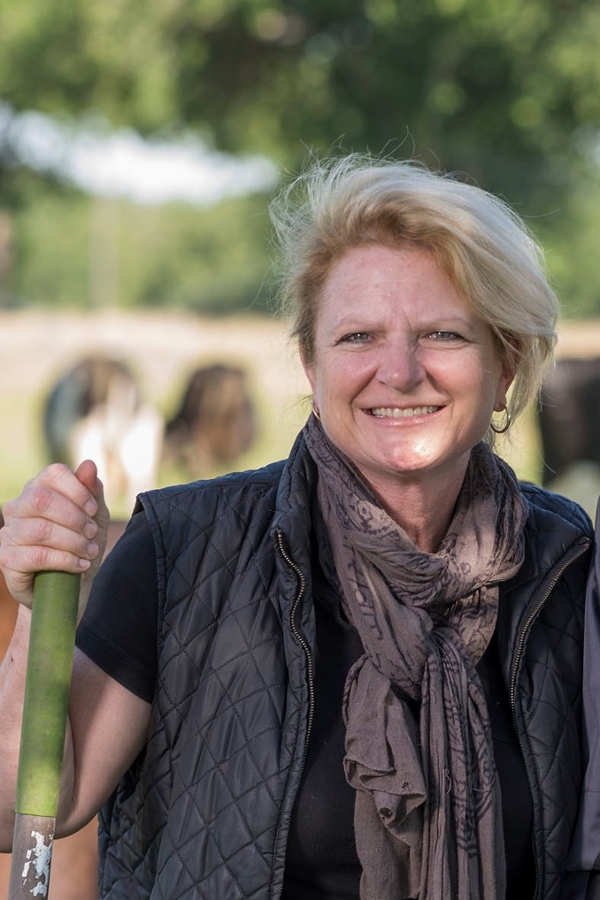 It is with great excitement that we announce that Dr. Cindy Daley has accepted the Rawlins Endowed Professorship in Environmental Literacy (Rawlins Professor) for a three-year position, beginning on August 22, 2019. Dr. Daley will be taking the reins from Dr. Colleen Hatfield who has held the post for the last five years. The Rawlins Endowed Professor in Environmental Literacy was made possible through a generous donation from Jack Rawlins, who through a successful career as a businessman, rancher and hunter, came to realize that environmental problems are not only complex but require an informed citizenry to work toward solutions.
It is with great excitement that we announce that Dr. Cindy Daley has accepted the Rawlins Endowed Professorship in Environmental Literacy (Rawlins Professor) for a three-year position, beginning on August 22, 2019. Dr. Daley will be taking the reins from Dr. Colleen Hatfield who has held the post for the last five years. The Rawlins Endowed Professor in Environmental Literacy was made possible through a generous donation from Jack Rawlins, who through a successful career as a businessman, rancher and hunter, came to realize that environmental problems are not only complex but require an informed citizenry to work toward solutions.
The overarching goal of the Rawlins Professorship is to promote environmental literacy and sustainability across the CSU, Chico campus and beyond. In this professorship, Dr. Daley will play a visible role in advancing sustainability across the university with particular leadership within Academic Affairs and support for CSU, Chico students engaged in sustainability efforts. Join us in congratulating Dr. Daley!
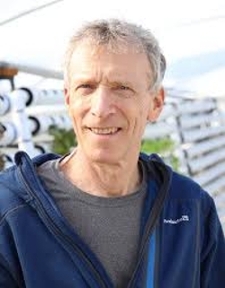 This award, established by family and friends, honors Paul Persons' memory by helping to realize his vision of a CSU system-wide emphasis on sustainability. Paul wanted every student in the CSU to have an opportunity to learn how to apply sustainable practices in their given field.
This award, established by family and friends, honors Paul Persons' memory by helping to realize his vision of a CSU system-wide emphasis on sustainability. Paul wanted every student in the CSU to have an opportunity to learn how to apply sustainable practices in their given field.
2019 recipient, Dr. Lee Altier, is the director of the Organic Vegetable Project at the Chico State University Farm. His primary areas of interest are sustainable cropping systems and food security. He is an advocate of the holistic management framework for planning and decision making.

